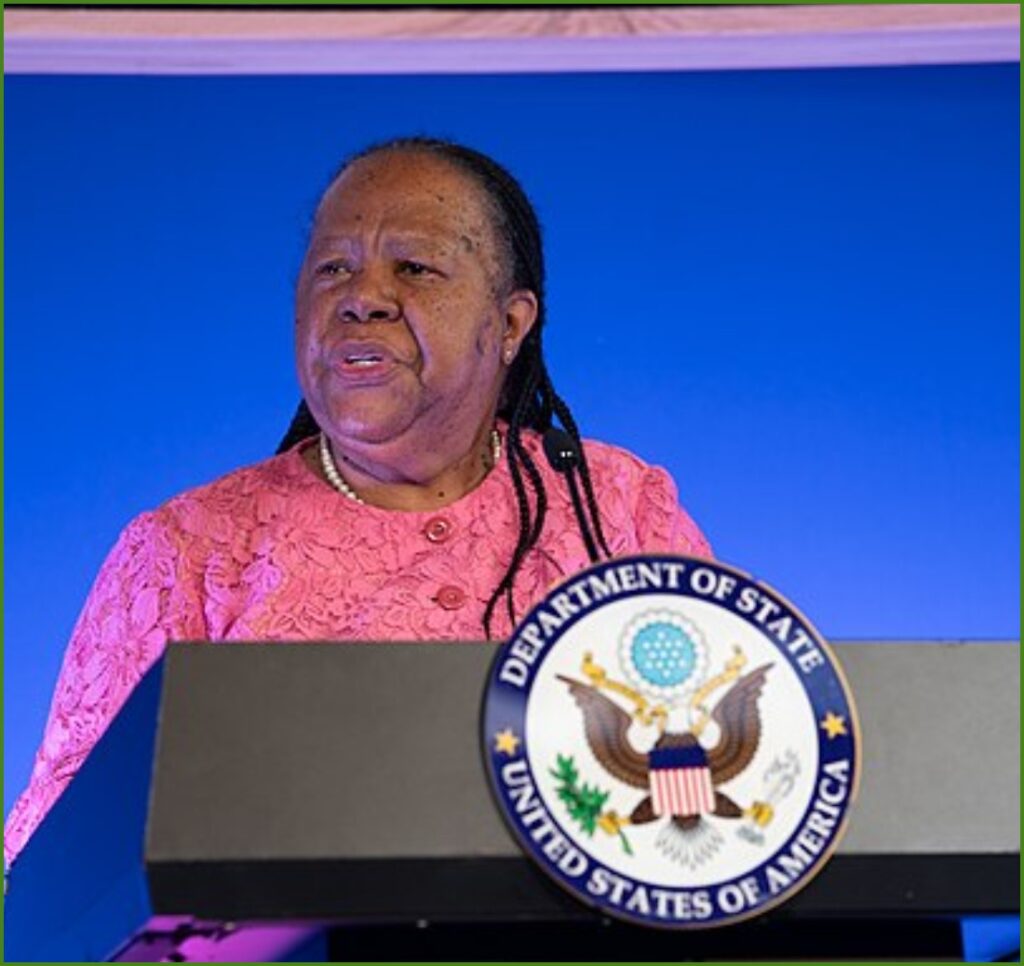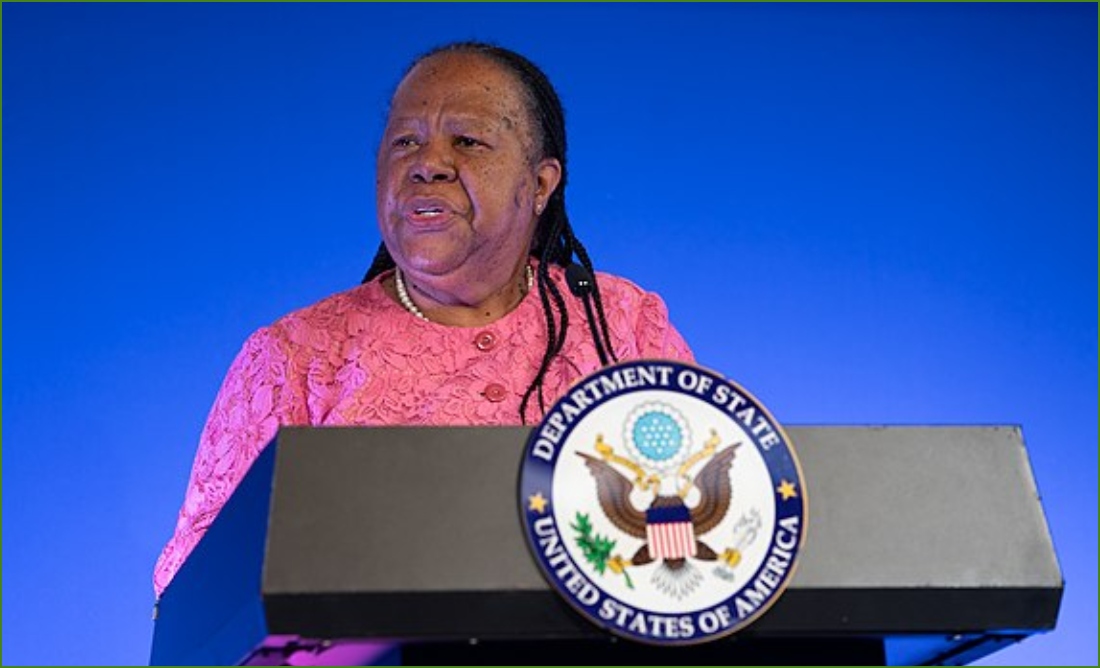Former South African minister Naledi Pandor has become the latest prominent African figure to have her U.S. visa unexpectedly revoked — a development drawing immediate comparisons to the recent visa cancellation of Nigerian Nobel laureate Wole Soyinka.
Pandor, who served as South Africa’s Minister of International Relations and Cooperation and now chairs the Nelson Mandela Foundation, confirmed that she received an email from the U.S. Consulate notifying her of the revocation. No explanation accompanied the decision.
The notice arrived just as she returned from a trip to the United States, despite previously holding a valid multiple-entry visa and routinely traveling to the country in her official and post-official capacity.

Diplomatic Shockwaves
The move has stirred unease within Pretoria’s diplomatic circles. While the U.S. government has offered no public reason, analysts point to what has become a familiar pattern: the tightening of visa scrutiny toward foreign leaders and intellectuals who sharply criticize U.S. foreign policy.
Pandor has been one of the most outspoken global voices on the Israel–Palestine conflict. She was in office when South Africa lodged its genocide case against Israel at the International Court of Justice — a move Washington vehemently opposed.
The former minister has also delivered pointed critiques of U.S. global power, most recently warning that the world is witnessing “a tectonic shift” and questioning Donald Trump’s punitive geopolitical philosophy.
Those critiques now sit at the center of speculation surrounding her visa’s sudden cancellation.
A Pattern Already Noted with Soyinka
The incident immediately parallels the ongoing case of Wole Soyinka, whose U.S. visa was revoked earlier this year. Soyinka — long critical of Trump — previously destroyed his U.S. green card in protest of the 2016 election result. His recent comparison of Trump to Ugandan dictator Idi Amin, he believes, may have triggered the additional consular scrutiny he faced before his visa was canceled.
In both cases, U.S. officials declined to issue a specific justification, citing administrative reasons or “additional information.” But the optics haven’t been lost on observers across Africa and beyond: outspoken critics of American policy are increasingly running into invisible walls at U.S. borders.
Diplomacy at a Crossroads
Pandor’s revoked visa now risks complicating the already fragile relationship between Washington and Pretoria. The timing is awkward — coming just as the United States appeared willing to reset relations with South Africa following a period of tension over Gaza, BRICS expansion, and South Africa’s geopolitical independence.
For South Africans watching closely, Pandor’s case raises unsettling questions about whether political speech now carries cross-border consequences — and whether the U.S. is strong-arming critics through administrative tools rather than open diplomacy.
For now, Pandor remains silent beyond confirming the revocation. The U.S. Embassy has not commented.
But her case — paired with Soyinka’s — is already forcing a broader debate:
Is Washington using visas as a quiet lever of foreign policy pressure?

